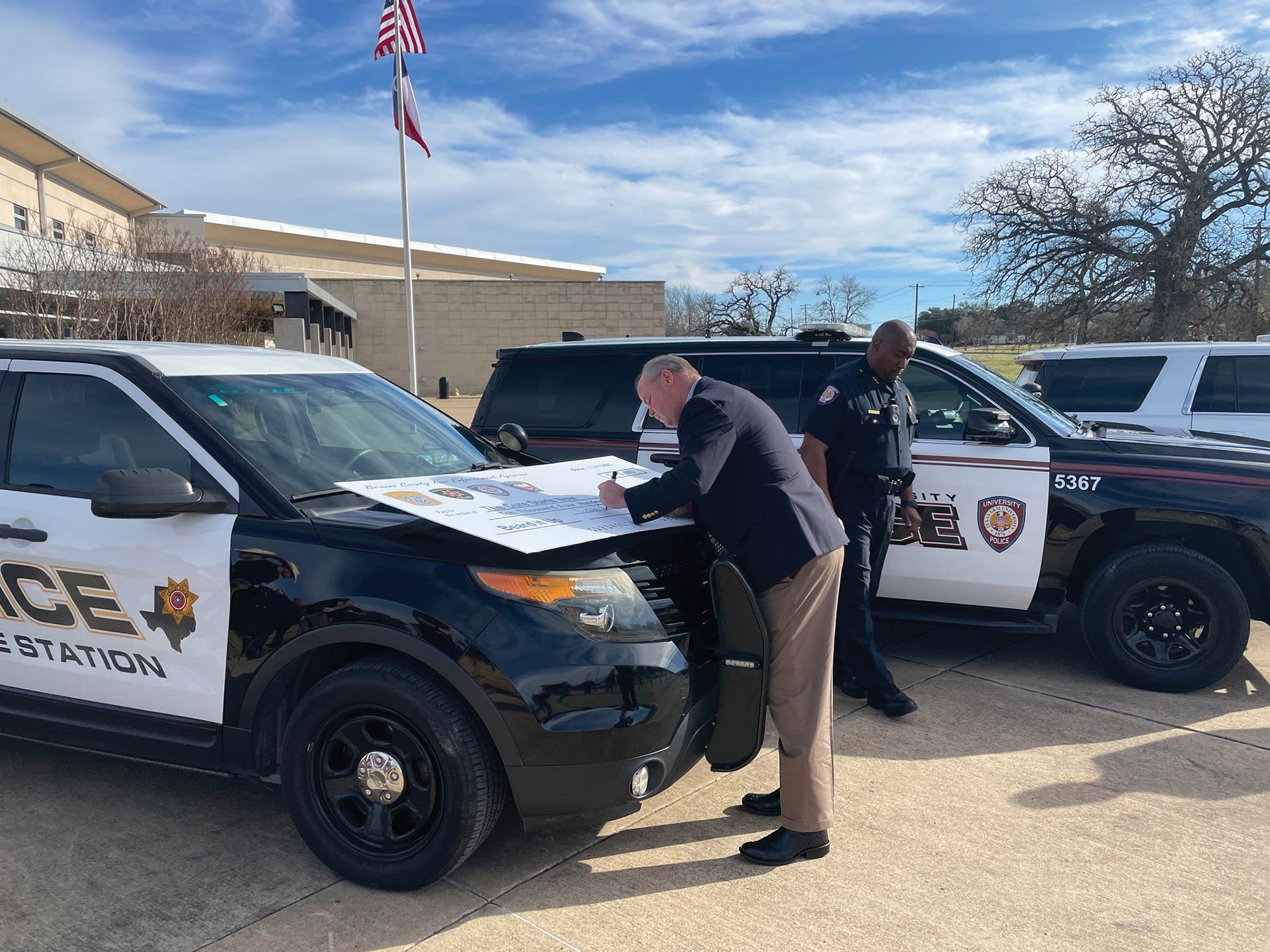
Four Texas law enforcement agencies teamed up to fight cancer by raising thousands of dollars for cancer research through their Beard it Up and Color for Cure fundraisers.
The fundraiser, launched in November by the Texas A&M University Police Department, Bryan Police Department, Brazos County Sheriff’s Office and College Station Police Department, raised $10,481 over just two months.
Under the program, participating officers could donate $50 to grow a beard or $30 to paint their nails with the color of a cancer that has affected them or someone they know.
Having facial hair or colorful nails is normally banned by police departments. However, the agencies made an exception throughout the duration of the fundraising campaign, which recently came to an end.

The goal of the campaign was not only to raise money but to raise awareness for an aggressive brain cancer called diffuse intrinsic pontine glioma (DIPG).
The money raised went entirely to the Central Texas chapter of the nonprofit The Cure Starts Now (tinyurl.com/3zws2a4k).
The nonprofit raises money for cancer research (with a focus on brain cancer research) from across the globe.
According to the organization, over 110 law enforcement agencies in 21 states have raised over $670,000 for the nonprofit since 2018.
The four Texas agencies jointly presented a check to the Texas chapter of the nonprofit on January 4.
Chapter Director Vicky Bridier was there to accept the check. She established the Central Texas chapter in September 2016 in honor of her daughter, Jade, who died of an aggressive DIPG brain tumor when she was 4-years-old.
Birdier said there wasn’t much research available when her daughter died, but the research has come a long way since then, and more treatment options are available.
“When my daughter died, there was really nothing out there. She couldn’t participate in research studies because she didn’t live long enough, and/or we couldn’t remove her tumor to get her tested. We lost her within five days, but the average lifespan of a child diagnosed with DIPG is nine months after they’re diagnosed,” Birdier explained. “Now, with all our research that we have put into funding, we are extending children’s lives to at least two years, three years, and we’re seeing four years now that they’re able to participate in all this research that we have funded. Hopefully, one day, it’s going to be longer, four years or five years. Hopefully, it’s going to be that cure we are looking for.”
Within the last four years, three Texas law enforcement families have lost children under the age of 10 due to the aggressive and terminal pediatric brain cancer.
As seen in the February 2023 issue of American Police Beat magazine.
Don’t miss out on another issue today! Click below:





